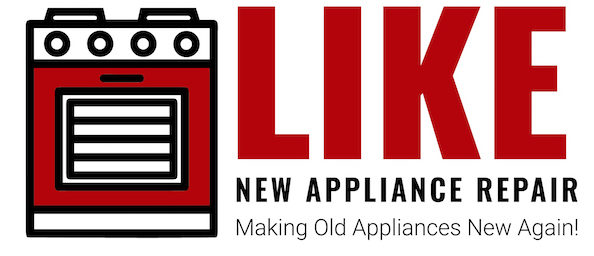Appliance Safety Tips
The appliances in a home make your life much less stressful, but if you operate household appliances the wrong way, they could produce significant health risks. You should protect your appliances and ensure that they will not turn into dangers by following these helpful home appliance safety recommendations from Like-New Appliance Repair.
The tips below help to prevent fires and injuries due to household appliances. That being said, hazards could still occur. If a home appliance has problems or begins to malfunction and becomes a danger, hire a professional appliance repair Cincinnati.
GFCI Outlets in Wet Locations
Laundry rooms, kitchens, bathrooms, basements, mud rooms, garages and outdoor areas can be susceptible to possible moisture or dripping water. Of course, electricity and moisture don’t mix, that means electrical cords and wires should always be plugged into GFCI outlets.
This special type of outlet prevents electrocution by tripping the circuit if any inconsistencies in power arise.
If you do not have GFCI outlets installed in wet rooms around your home, it is time to install them or call an electrician in Cincinnati. Then, for safety, be sure to heed the warnings of appliance manuals that note that they are not meant for outdoor areas.
Wires, Outlets & Electronics Away From Water
Some appliances are specifically designed for the outdoors, such as gas and charcoal grills, for example. If you have any electrical appliances outdoors – including dishwashers, refrigerators, ice makers and freezers, power tools and others – ensure that all plugs and outlets are not wet. Using weatherproof electronics help with this, in addition to GFCI outlets with gaskets that are water-tight.
Extension Cords are Only a Momentary Answer
An extension cord poses several risks, this includes:
- The potential for a loose connection that might result in sparks and cause a fire.
- The possibility of power inconsistencies that might damage the appliance.
- Increased vulnerability to moisture penetration that can result in electrocution.
- The potential for wires overheating and turning into a fire hazard when an insufficient extension cord is combined with a high-power appliance.
When determining an extension cord for short-term use, ensure it is the appropriate gauge for the electrical equipment in question. The lower the gauge, the larger the cord size. For instance, a basic extension cord for a garden tool will have a 16-gauge cord where a bigger cord for a window air conditioner needs a 12-gauge wire.
The length is also a factor. The longer the extension cord, the more electricity is used up on the way, this is known as voltage drop. Shorter extension cords are good for power tools and equipment.
Read the Manual for Any Appliance You Buy
It is obvious to guess that you know how to use your brand new home appliance without reading the manual, but consulting the guidelines is important for several reasons:
You will want to find out if your home’s electrical wiring is sufficient to power the appliance. You might have to install a new circuit to prevent overloading your existing ones.
You learn more about complicated features you might not otherwise have known about.
You understand whether the appliance is OK for outdoor use or not.
You do not have the frustration that can come from attempting to use a new appliance with no instructions!
Unplug Small Appliances in Your Home When Not in Use
You can reduce unnecessary energy usage by unplugging appliances when you aren’t using them. The reason is small appliances include LED lights, timers and other energy-draining features while in standby times.
Unplug televisions, computer monitors, internet routers, game systems, smart phone chargers and more to limit unnecessary energy use. But remember, it’s worthwhile to keep DVRs and similar electronics plugged in to prevent missing out on their background features.
For more tips on ways to use appliances safely, or to call a professional appliance repair company, please contact Like-New Appliance Repair. Our technicians can fix all major household appliances!
OTHER RESOURCES:
Appliance Repair Cost
DIY Appliance Repair Tips
Repair or Replace Appliances
Refrigerator Parts
Home Services Campaign Disclaimer: This site is a free service to assist homeowners in connecting with local service providers. All contractors/providers are independent and this site does not warrant or guarantee any work performed. It is the responsibility of the homeowner to verify that the hired contractor furnishes the necessary license and insurance required for the work being performed. All persons depicted in a photo or video are actors or models and not contractors listed on this site.
Copyright ©2025 Like-New Appliance Repair
